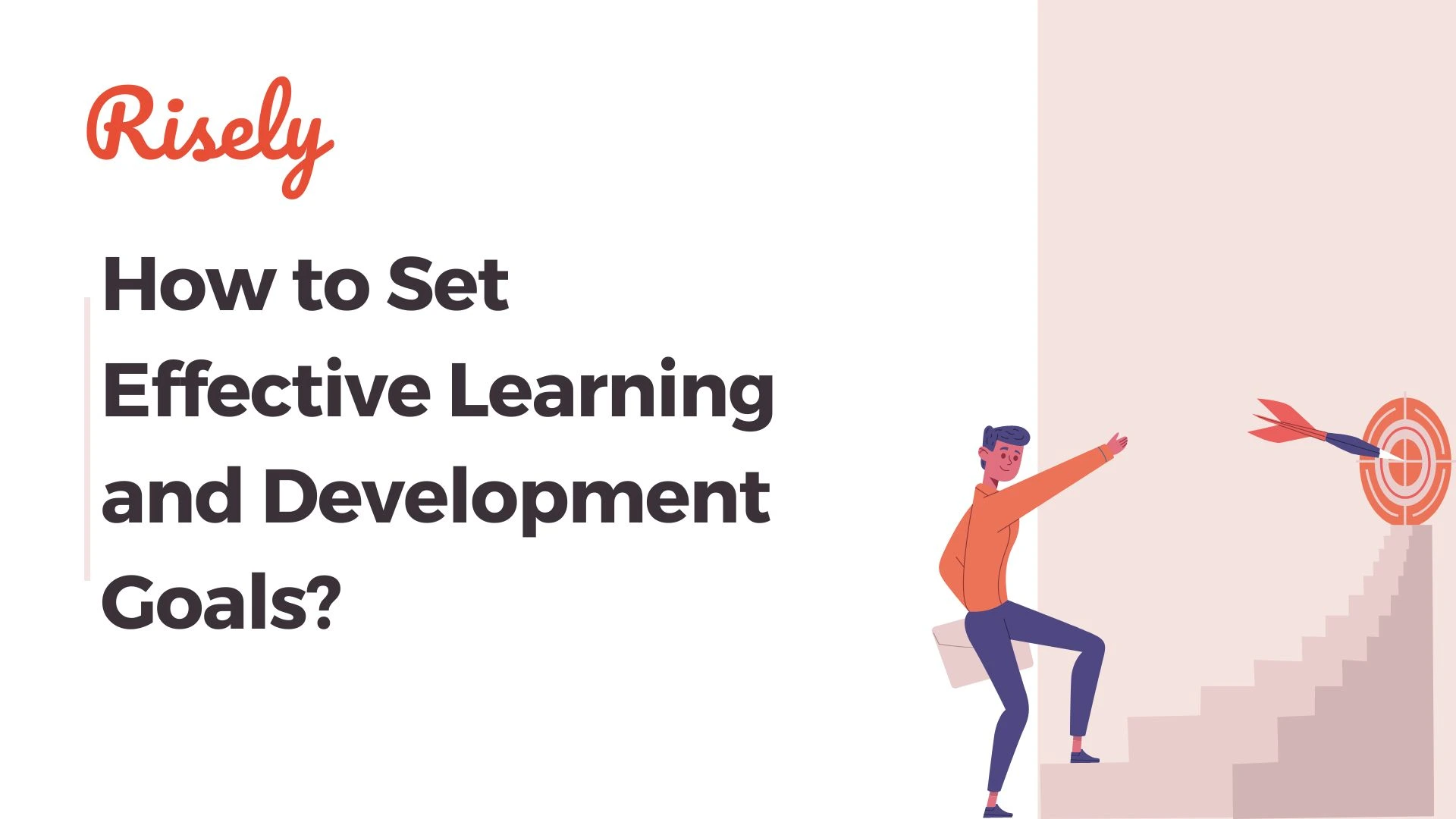Human Resources Manager Training: A 6 Step Framework
You’ve poured your heart and soul into crafting a killer L&D program, but your brilliant new hires aren’t clicking. Frustrating, right? Numerous studies have shown a strong link between effective HR practices and improved employee performance, productivity, and engagement. That’s where effective HR managers come in – they’re the bridge between your meticulously designed programs and a truly engaged, high-performing workforce. But the HR field is changing faster than ever. Remember the days of simply handling paperwork and processing payroll? Today’s HR managers are strategic partners, guiding company culture, navigating complex legal landscapes, and wielding data to make informed talent decisions. To keep pace with this evolving role, continuous learning and development for HR managers is no longer a nice-to-have; it’s a must-have. Let’s dive deeper into why investing in human resources manager training is a win-win for you, your HR team, and your entire organization.Where do HR Managers get stuck?
Imagine you’re an HR manager, and you feel like you’re constantly putting out fires. Regulations seem to change daily, employees come to you with complex interpersonal issues, and sometimes, it feels like you’re drowning in data without a life raft. Sound familiar? The HR landscape is a minefield of challenges; even the most seasoned professionals can fall victim to common pitfalls. Here are a few key areas where HR managers can get tripped up:- Strategic Shortsightedness: Sometimes, the daily grind of paperwork and employee issues can overshadow the bigger picture. However, effective HR managers are strategic partners, not just administrative processors. Getting stuck in the weeds can prevent you from aligning HR initiatives with the company’s overall goals and future vision.
- Regulation Rollercoaster: Employment laws are a labyrinth, and keeping up with federal, state, and even local regulations can feel like a never-ending game of whack-a-mole. One misstep here can have severe legal and financial repercussions for the organization.
- Communication Catastrophes: HR often finds itself at the center of workplace conflicts. However, without strong communication and conflict resolution skills, these situations can escalate quickly, damaging morale and productivity. Remember, HR is the bridge between employees and management – clear and empathetic communication is essential for building trust and fostering a positive work environment.
- Data Deluge: HR departments are swimming in data – employee performance metrics, compensation trends, and engagement surveys. The challenge is turning this data into actionable insights. Without the ability to analyze and interpret data effectively, HR managers miss valuable opportunities to improve processes, identify talent gaps, and make data-driven decisions.
A Framework for Human Resources Manager Training
You wouldn’t send a new salesperson into the field without proper training, would you? So why leave your HR team, the architects of your company culture and talent strategy, without the tools they need to thrive? Here’s a comprehensive framework to guide you in building a winning Human resources manager training program:Mastering the Fundamentals
Every great HR pro has a solid grasp of core HR functions. Your human resources training program should ensure HR managers are well-versed in:- Recruitment & Onboarding: From attracting top talent to smoothly integrating new hires, HR plays a critical role in setting the stage for success.
- Performance Management: Effective performance management systems evaluate employee contributions and provide opportunities for growth and development.
- Compensation & Benefits: Understanding compensation structures, packages, and legal requirements is essential for attracting and retaining a competitive workforce.
Navigating the Legal Landscape
Staying on top of complex employment laws and regulations is crucial. Equip your HR team with the knowledge to:- Interpret and comply with federal, state, and local employment laws. This includes wage and hour regulations, anti-discrimination laws, and workplace safety standards.
- Mitigate risk. Proactive HR practices can help prevent costly lawsuits and ensure a safe and fair work environment.
Thinking Strategically
Move beyond the paperwork! HR managers who can think strategically are invaluable assets. Your human resources training program should develop skills in:- Strategic HR: Aligning HR initiatives with the organization’s overall goals and objectives. This involves understanding the business and its needs and using HR practices to support growth and success.
- Talent Management: Developing a comprehensive talent strategy to attract, retain, and develop high-performing employees. This includes everything from succession planning to employee engagement programs.
Communication & Conflict Resolution
HR often finds itself in the middle of disagreements. Strong communication and conflict resolution skills are essential for:- Facilitating clear and open communication between employees and management. This helps build trust and fosters a positive work environment.
- Effectively resolving conflicts before they escalate into larger issues.
Data-Driven Decision Making
HR departments are data-rich environments. The key is unlocking the power of data to make informed decisions. Help your HR team develop skills in:- Data analysis: Interpreting and drawing meaningful insights from employee data, performance metrics, and engagement surveys.
- HR technology integration: Leveraging HR technology platforms to streamline processes, automate tasks, and gain deeper insights from data.
Equipping Your L&D Team with Resources
Now that you have a framework, how do you bring it to life? Here are resources to empower your L&D team:- Online Courses & Certifications: Platforms like LinkedIn Learning and the HR Certification Institute (HRCI) offer various HR-related courses.
- Industry Workshops & Conferences: Stay up-to-date on the latest trends and best practices by attending industry events.
- Coaching & Mentoring Programs: Pair seasoned HR professionals with new HR managers to provide guidance and support.
- Case Studies & Best Practice Guides: Learning from real-world examples can be invaluable. Look for case studies and best practice guides on relevant HR topics.
Other Interesting Reads
Actionable Tips for HR Manager Development
We’ve explored the critical areas for Human resources manager training, but even the most well-designed program can fall short if not implemented effectively. Here are some actionable tips to avoid common mistakes and ensure your human resources manager training truly empowers your HR team:From Theory to Action: Prioritize Practical Application
Memorizing HR regulations is only half the battle. Effective HR managers need to be able to apply their knowledge in real-world situations. Here’s how to make your human resources manager training practical:- Scenario-Based Learning: Develop realistic scenarios that mirror HR managers’ challenges, such as conducting a problematic performance review or mediating a workplace conflict. Use role-playing exercises to allow participants to practice their skills in a safe environment.
- Case Studies & Best Practices: Don’t reinvent the wheel! Incorporate case studies that showcase successful HR initiatives from other organizations. This allows HR managers to learn from real-world examples and adapt best practices to your company’s context.
- Action Planning: Don’t let the learning stop after the training session. Encourage HR managers to develop action plans outlining how they will apply the skills and knowledge they gained to their daily work.
Tailored Training: Addressing Your Organization’s Needs
A one-size-fits-all approach won’t cut it. The most effective human resources manager training programs are tailored to address your organization’s specific needs and challenges. Here’s how to ensure your program is relevant:- Needs Assessment: Conduct a needs assessment to identify the specific skills and knowledge gaps within your HR team. Consider factors like industry regulations, company culture, and upcoming strategic initiatives.
- Focus on Your Niche: Does your organization operate in a heavily regulated industry? Tailor human resources manager training to include in-depth coverage of those specific regulations. Are you facing challenges with employee retention? Dedicating human resources manager training modules to effective onboarding and engagement strategies can be highly beneficial.
- Employee Feedback: Don’t operate in a silo. Gather feedback from HR managers and employees about their challenges and the skills they feel are most needed. This can help you tailor the human resources manager training program to address real-world concerns.
Fostering Continuous Learning: A Growth Mindset
The HR landscape constantly evolves, and the skills needed for success can change rapidly. Here’s how to encourage a culture of continuous learning within your HR team:- Refresher Courses: Offer periodic refresher courses to keep HR managers up-to-date on legal developments, HR trends, and best practices.
- Subscription Services: Invest in subscriptions to HR publications or online resources that provide ongoing updates and insights on the HR industry.
- Knowledge Sharing Sessions: Encourage HR managers to share what they have learned with each other through brown bag lunches or internal knowledge-sharing sessions. This fosters collaboration and keeps everyone up-to-date.
- Conference Participation: Support your HR team’s participation in industry conferences and workshops. This allows them to network with peers, learn from leading experts, and discover new approaches to HR challenges.
Wrapping Up
Remember that frustrated feeling when your meticulously designed L&D program doesn’t resonate with new hires? Strong HR practices bridge your programs and a truly engaged workforce. But today’s HR managers need more than just administrative skills. They’re strategic partners navigating complex legal landscapes and wielding data to make informed talent decisions. Investing in human resources manager training isn’t a nicety; it’s a must-have. By equipping your HR team with the skills to excel, you’ll see a positive impact across the organization – improved employee engagement, reduced turnover, and a more strategic HR function driving better business outcomes. Don’t wait – take action today to develop, implement, or refine your human resources manager training program. Your investment will pay dividends for your organization’s future.Test your communication skills now to become an effective collaborator with teams
Get detailed insights delivered straight to your inbox in just a few minutes.
Other Related Blogs
How to Set Effective Learning and Development Goals?
This blog highlights how effective learning and development goals are set, why is setting them important for your organization and what challenges you might face during this process. … Read…
Are you on track to meet your Q1 goals?
Are you on track to meet your Q1 goals? We are in the middle of the first quarter of 2024. Seems hard to believe. It surely is! ⏰ Time has…
5 Secrets Of Solid Goal Setting At Work You Can’t Miss
5 Secrets Of Solid Goal Setting At Work You Can’t Miss “I don’t focus on what I’m up against. I focus on my goals and I try to ignore the…
Understanding the world of Goal Setting Coach to reach new heights
Understanding the world of Goal Setting Coach to reach new heights Setting and achieving goals is essential for personal and organizational success in today’s fast-paced and competitive work environment. However,…


